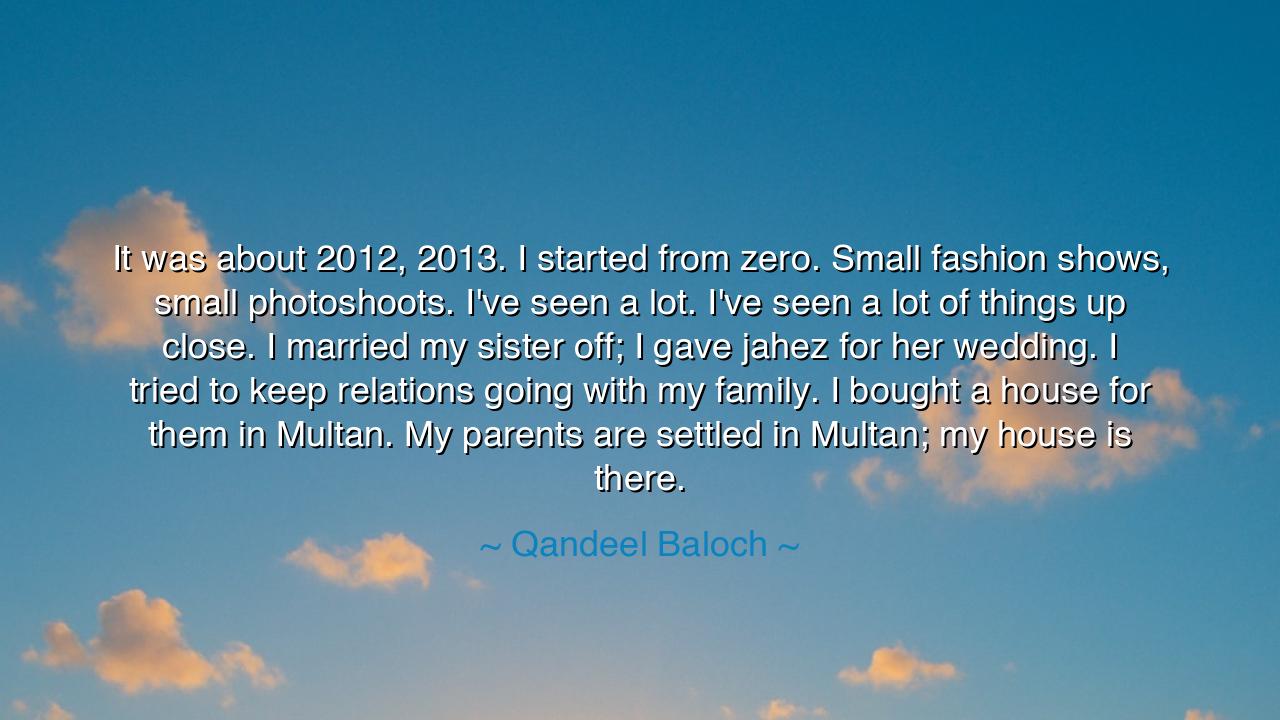
It was about 2012, 2013. I started from zero. Small fashion
It was about 2012, 2013. I started from zero. Small fashion shows, small photoshoots. I've seen a lot. I've seen a lot of things up close. I married my sister off; I gave jahez for her wedding. I tried to keep relations going with my family. I bought a house for them in Multan. My parents are settled in Multan; my house is there.






The words of Qandeel Baloch—“It was about 2012, 2013. I started from zero. Small fashion shows, small photoshoots. I've seen a lot. I've seen a lot of things up close. I married my sister off; I gave jahez for her wedding. I tried to keep relations going with my family. I bought a house for them in Multan. My parents are settled in Multan; my house is there.”—are heavy with the dignity of struggle and the fire of resilience. They tell of a woman who rose from nothing, who endured trials both public and private, and who gave of herself even when the world gave her little in return. The wedding she mentions is not simply a family event, but a symbol of duty fulfilled, sacrifice offered, and love expressed in the face of hardship.
Her journey from small fashion shows and photoshoots to recognition was not merely a climb in fame, but a battle for survival. In a culture often unkind to women who break boundaries, every step was won through resistance. Yet even as she forged her own path, she did not abandon her roots. She honored her family, providing for her sister’s marriage and bearing the weight of jahez, a tradition that often cripples households with expectation. In this, her story reflects the countless silent labors of women who uphold families even as they struggle to uphold themselves.
History remembers similar souls. One may think of Hypatia of Alexandria, the philosopher who shone with wisdom in a time when few women could speak publicly. Like Qandeel, she faced hostility for daring to step into the light, and yet she gave knowledge and service to her city until her last breath. Both women reveal the same truth: those who dare to break chains often do so not only for themselves, but for their people, their families, their communities.
The mention of Multan, her home, grounds her words in soil and memory. No matter how far she walked into the world of fashion, fame, or controversy, she remained tethered to her family and her land. To buy a house for her parents was no mere transaction, but an act of restoration—a way of saying that her struggle was not for vanity, but for the dignity of those who raised her.
Therefore, O listener, take this wisdom: the path of greatness often begins with zero, with the smallest of steps taken in obscurity. It is not the roar of the crowd that defines a life, but the sacrifices made along the way—the weddings financed, the families supported, the homes built in the name of love. Qandeel’s words remind us that heroism is not always in public triumph, but in the quiet victories that keep families alive and futures possible.






VLVo Linh
I’m impressed by Qandeel Baloch’s journey from small fashion shows to supporting her family with the success she achieved. It sounds like her drive and commitment were key factors in making things happen for her loved ones. Do you think people who come from modest beginnings feel a greater sense of responsibility to take care of their families? How does that sense of duty affect their career decisions?
KNVu Khanh Ngoc
Qandeel Baloch’s perspective on her journey, from humble beginnings to helping her family in Multan, is both inspiring and relatable. It’s admirable how she managed to support her family while building her own career. But do you think the pressure to take care of family can sometimes hold people back from reaching their fullest potential? How do you think we can navigate those expectations without compromising our own dreams?
Pphanhuy503
Qandeel Baloch’s experience of starting from nothing, working on small projects, and gradually supporting her family is inspiring. It makes me wonder, though, do you think people in her position often face judgment for how they balance their personal lives with their career? It seems like there's always a fine line between cultural expectations and personal ambition, especially in industries like fashion and entertainment.
NDNguyen Duong
Qandeel Baloch's reflection on her journey from humble beginnings to supporting her family shows incredible resilience. Her dedication to her family, from the jahez to buying a house in Multan, is touching. But do you think it's common for people in the entertainment or fashion industry to feel torn between family obligations and their career aspirations? How can one achieve a healthy balance?
DHPham Duy Hung
It’s so powerful how Qandeel Baloch mentions the sacrifices she made for her family, like marrying her sister off and buying a house for her parents. It’s clear that family meant a lot to her. But do you think there’s a pressure in some cultures to prioritize family responsibilities before personal ambitions? How do we find the balance between caring for loved ones and pursuing our own dreams?